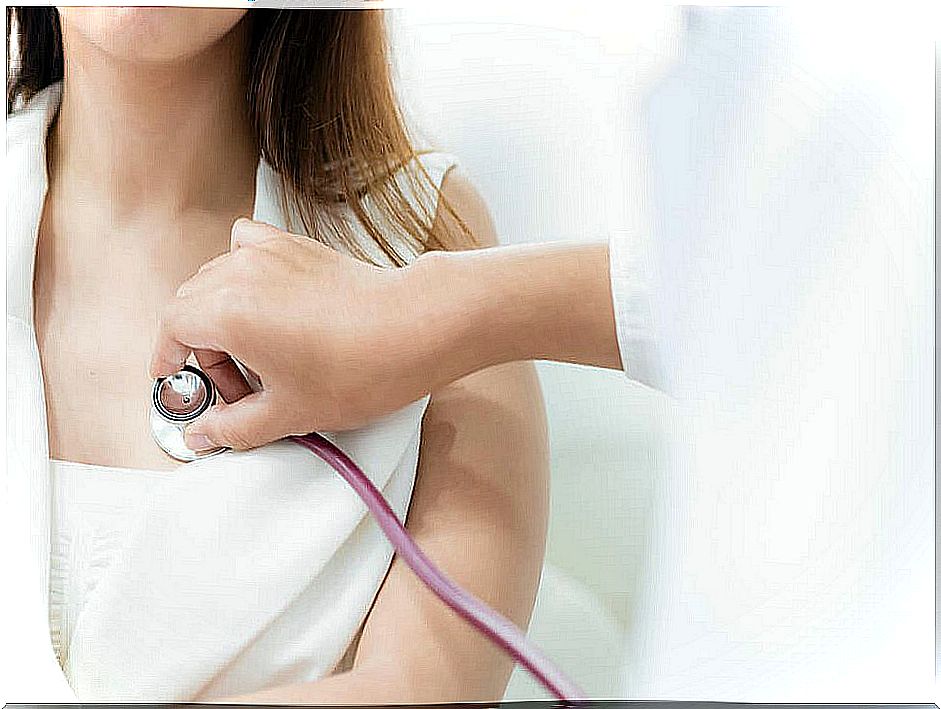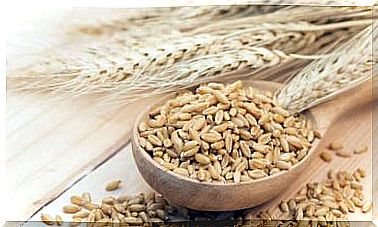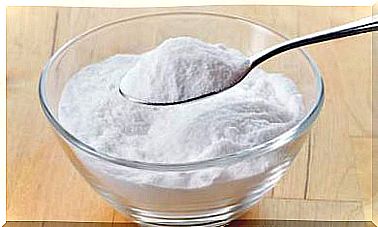Christmas: A Cardiovascular Risk Factor?
A wide variety of studies have associated Christmas with increased cardiovascular risk. In particular, it has been observed that during these dates there is a higher incidence of fatal events, such as heart attacks and cerebrovascular disease. For what reason?
This is explained by several reasons; however, most of the time it is possible to take steps to avoid it. How to enjoy the holidays responsibly? In the following space we share some recommendations.
Why can Christmas be a cardiovascular risk factor?
Whether Christmas is a cardiovascular risk factor depends largely on habits. However, there are also other situations that affect, such as cold, stress and delay in going to hospitals due to signs of health problems. Let’s see in detail.
Winter cold
Heart attacks and other cardiovascular events are related to the obstruction of blood flow to a certain tissue. This makes it difficult to supply oxygen and nutrients for proper function, which can lead to the death of cells in a few minutes.
This obstructive phenomenon is usually influenced by several factors. One of them is the degree of dilation of the blood vessels, that is, their diameter. It is not a static measurement, since it can be modified thanks to the smooth muscle that is found around the arterioles and the elastic properties of the vessels.
Therefore, in a contracted vessel there is less blood flow than in one that is dilated. If there is an obstruction, such as an atheroma plaque, the risk of heart attacks is greatly increased.
In order to divert blood flow to more important organs, when there are cold environments, generalized arterial vasoconstriction occurs. In addition, there is usually a release of hormones such as adrenaline, which promote an increase in blood pressure.
This would explain, in part, the increase in cardiovascular mortality in the coldest months of the year. According to this study published in the journal Circulation , it is usually in regions less accustomed to this climate, such as the southern United States.

Diet changes, alcohol and cigarettes
It is no surprise to anyone that Christmas is synonymous with lots of food. According to the country and family customs, dishes and drinks can vary greatly. However, as a general rule, the consumption of carbohydrates, sweets and alcohol increases on holidays.
During the ingestion of large meals, the incidence of myocardial infarction or angina pectoris often increases in high-risk patients. This could be related to the redistribution of blood flow throughout the body towards the digestive tract to promote the absorption of nutrients.
When this happens, the blood supply to the heart through the coronary arteries can be diminished. If there is a large atheroma plaque, the increased turbulence caused by vasoconstriction could cause it to rupture. This would release small thrombi capable of interrupting circulation.
The consumption of alcohol and cigarettes is also another problem. According to this study published in 2015, a large number of patients who suffered a cardiovascular event reported alcohol and tobacco abuse in the 12 months prior to the incident.
In turn, tobacco use has a direct effect on arterial vasoconstriction, which can increase the risk of suffering any of these events in the event of excesses.
Stress
Although the goal is always to enjoy and share good times with the family, it does not always turn out that way. Work worries, searching for the right gifts, organizing events, and reuniting loved ones could become a real headache.
These situations could trigger emotional stress. This term refers to the set of changes within the body that occur in response to an internal or external event. The protagonists of this response are hormones and the nervous system.
The activation of the hypothalamic-pituitary-adrenal gland axis and the vegetative nervous system leads to the release of various substances that have activity on the cardiovascular system. Adrenaline is one of the most representative.
This acts on the arterioles to promote their vasoconstriction, which is closely related to the appearance of cardiovascular events. In addition, the release of fatty acids, clotting and increased heart rate (tachycardia) are promoted.
When analyzing a little more in depth the tachycardia, this can be a factor that accelerates the appearance of heart attacks. As the heart is working with more intensity, the energy and oxygen requirements are higher. If this condition is maintained over time, the probability of injury increases considerably.
Do not go to health centers
In a recent review article, the authors established the profile of patients who usually take longer to visit hospitals during acute coronary syndrome. This delay has a considerable influence on mortality, especially in the context of extensive infarcts that require immediate coronary reperfusion.
Some factors that condition a delay are the following:
- Older women.
- Have a single or divorced marital status.
- Not having life insurance.
- Low socioeconomic status.
- Living alone.
In turn, according to the authors, this can happen on several levels. The first of these is the identification by patients of the characteristic signs and symptoms of an acute coronary syndrome. The second refers to the request for help and the transfer to a hospital.
Because Christmas is such an important time for many people, the delay can be considerable. When symptoms start in the early morning hours, during a traditional dinner, or in the context of any celebration, it can become difficult to ask for help.
Hospitals generally operate with less capacity during these festive dates. In rare cases, the delay in attention could also be due to this factor.

Who is at higher cardiovascular risk at Christmas?
Any patient who has cardiovascular risk factors can suffer such an event at Christmas. Most correspond to chronic diseases, and the prognosis may worsen if the indicated treatment is not followed.
Those who suffer from diabetes mellitus should take extra precautions. It is a group of metabolic disorders related to a deficient production or mismanagement of insulin. Therefore, they must follow fairly strict diets and watch their blood glucose levels.
Personal or family history of cardiovascular diseases, such as systemic hypertension, are also considered risk factors. In fact, according to this review article, the risk of suffering a cerebrovascular disease (CVD) increases between 3 and 4 times in patients with this pathology.
Obesity must also be taken into account. It is a chronic disease characterized by an increase in the body mass index above 30 kg / m2, closely linked to genetic factors. Angina pectoris, myocardial infarction, arterial hypertension and CVD are some of the consequences of suffering from this pathology.
Although a direct link between Chronic Obstructive Pulmonary Disease (COPD) and cardiovascular events has not been demonstrated , these patients usually have associated classic risk factors. That is, many of them, in addition to COPD, tend to have high blood pressure and obesity, which worsens their prognosis.
How to reduce cardiovascular risk at Christmas?
To reduce cardiovascular risk at Christmas, it is convenient to maintain healthy habits, especially when it comes to diet and exercise. Here are several tips.
Exercise
This issue must be handled with care, as it can be a double-edged sword. During Christmas, people with classic risk factors may experience these events more often if they exercise too much.
During these types of activities, both the release of hormones and tachycardia can cause the appearance of an acute coronary syndrome. It is advisable to consult the doctor before starting an exercise plan in a person with a long-standing sedentary lifestyle.
Activities such as walking for at least 30 minutes a day and stretching exercises are generally allowed. Sports such as tennis, track and field, soccer, or just jogging may put too much strain on patients.
This is highly dependent on age and the other comorbidities. In any case, it is advisable to start the activity little by little and before winter starts.

Feeding
In general, large and unhealthy meals should be avoided. The greatest risk is for diabetics, who should try not to commit excesses that could lead to suffering from any of the acute complications of their disease.
For this, it would be advisable to replace some plates. The entrees, instead of containing fried foods, could include soups or creams made with natural ingredients. In the case of main meals, it is preferable to opt for fish, vegetables and puree. Cheese is always a controversy for these patients, so we recommend reading this article.
Of course, this does not mean that small bites of the main meals cannot be tried, unless there is an explicit contraindication by the doctor. In these cases, the most important thing is not to overdo it, especially in late hours of the night when it may be difficult to access health services.
In the case of drinks, it is advisable to avoid alcohol. Although its occasional consumption is not usually associated with the appearance of acute cardiovascular events, diabetic patients should avoid it. When consumed, it only provides “empty calories” with little or no nutritional value.
In these patients, it is worth having a glucometer on hand to be able to measure blood glucose values in case of any physical discomfort. Sometimes this simple habit can prevent many complications from the underlying disease.
Relaxation techniques
In order to avoid stress on these dates, the use of relaxation techniques is valid. Trying not to overload yourself with work, respect work hours, improve communication with loved ones and sleep the right hours are also small elements that, together, can make a difference.
There are a lot of techniques that you can learn. Tai Chi, according to the Mayo Clinic, is a useful option. It is a non-competitive low intensity exercise modality, whose origin dates back to some Chinese traditions.
Through stretching maneuvers, proper posture and deep breathing, it is possible to acquire certain health benefits. This could help improve sleep quality, promote relaxation, and decrease anxiety.
In fact, some studies have postulated a possible relationship between its habitual practice and the reduction of blood pressure. Other practical tips include getting your holiday shopping early and planning all activities early.
Take care of the cold
For those who plan to spend these dates in a colder area than usual or who do not tolerate this type of environment, it is necessary to take into account certain things to prevent the appearance of cardiovascular events, such as the following:
- Wear suitable clothing (coat, socks, gloves and hats).
- Avoid sudden changes in temperature when leaving and entering establishments.
- Fix any problems with the heaters before the holidays.
- Prioritize meetings at home over going out to premises.
Christmas is a time of joy and celebration. Despite this, the incidence of cardiovascular events on these dates is proven. Following a few basic recommendations could make the difference between great days and a hospital stay. If in doubt, consult your trusted doctor.









